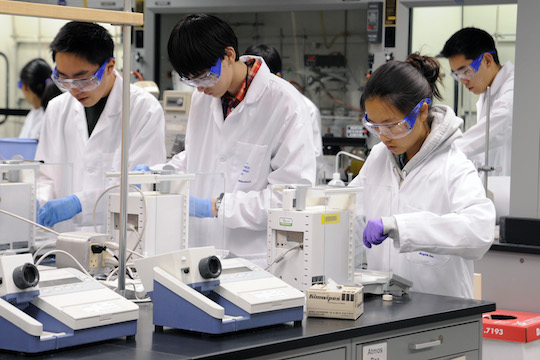The education system has been only improving in the last few years, and more and more our society is developing ways of educating our youth considering their personalities, learning type, interests, skills and talents. The educational system has also managed to change according to the needs in the working field. Everyone has something to contribute to society, and a school’s job is to discover what that is and develop it.
Vocational training is still unknown to a lot of people but since its appearance it has left its mark in the market . So what is vocational training and how does it influence the choices professionals are making nowadays? Let’s find out!
Vocational school vs. Academic schools
All schools are academic, they are made for people to grow in knowledge. But the difference that I would like to make is based on the purpose of each type of education.
If you asked someone today why they decided to go to high school they might give you one of two answers. They might say “To pursue further education in university and get a job” or simply “To get a job”.
A few years ago, the educational system realised that the working force was suffering a lack of low range professionals, because most students decided to pursue a higher education, or were simply not trained in a specific craftsmanship at school, apart from basic knowledge.
This gave room for what we know today as Vocational schools. These high school institutions provide students with basic education, but added to that, provide them with technical skill that can be used in the workforce.
While academic schools might have 30 hours of pure academic content and maybe 5 hours of practice, vocational schools spend 10-15 of their 40 schooling hours focusing on practical skills.
You can also find a wide range of vocational careers, and these include, chemistry, nursing, business, arts and design, information technology, electronics, electricity, mechanics, civil construction and more. So while your basic schooling remains the same, the extra practice hours are spend on subjects specific to the career chosen.
Vocational training is similar but not the same as having an education with extra curricular activities. Since even though they have a lot of practice hours included in their curriculum, these schools also offer extra curricular activities like arts, sports and academic clubs.
A taste of what is to come
One of the possible gaps found in the academic educational system, is that it was made to prepare students for further studies. This means that they would learn all the basics needed to get even more knowledge on top of that foundation. The gap appears though, when it is time to choose a career path in university, for students have barely had a taste of what each career could look like.
So this means, a lot of students enter university based on an idea of what they think a career involves. This is why a lot of students find themselves dropping out of universities during their first years, after realising their passion was to pursue some other interest.
Vocational training gives young people the opportunity of investing three years in a career with the option of choosing something else when they go to uni. So this is like a taste of what is to come that will help them make a wise choice based on their interests.
Opening doors of opportunity
Just like academic schools have connections with different higher education programs, vocational schools have great connections with the workforce to offer. Students get to choose where they want to do a month-long or two-month long internship and after that they might get a job opportunity as well.
The goal of vocational training is to give students just enough training so they can perform with excellence as technical professionals. But even if they choose to pursue higher education, this training exposes them to demanding timetables and a higher difficulty in evaluation that will prepare them for what is to come in university.
There is no right or wrong in educational systems, every country continues to evolve according to what they see works in their context. And with this you will find schools that give you the opportunity to pursue your career overseas, or maybe allow you to finish early in order to enter university at a younger age. But the important point is that education continues and will continue to be foundational to the growth in society.
As a vocational high school student, even though I decided not to pursue my initial career, what I learned continued to be valuable and applicable throughout my whole higher education process.
So have you considered to do some vocational training? Or if you are a parent, have you considered that this might help your kids find their passion?
Let us know! We would love to hear from you!


